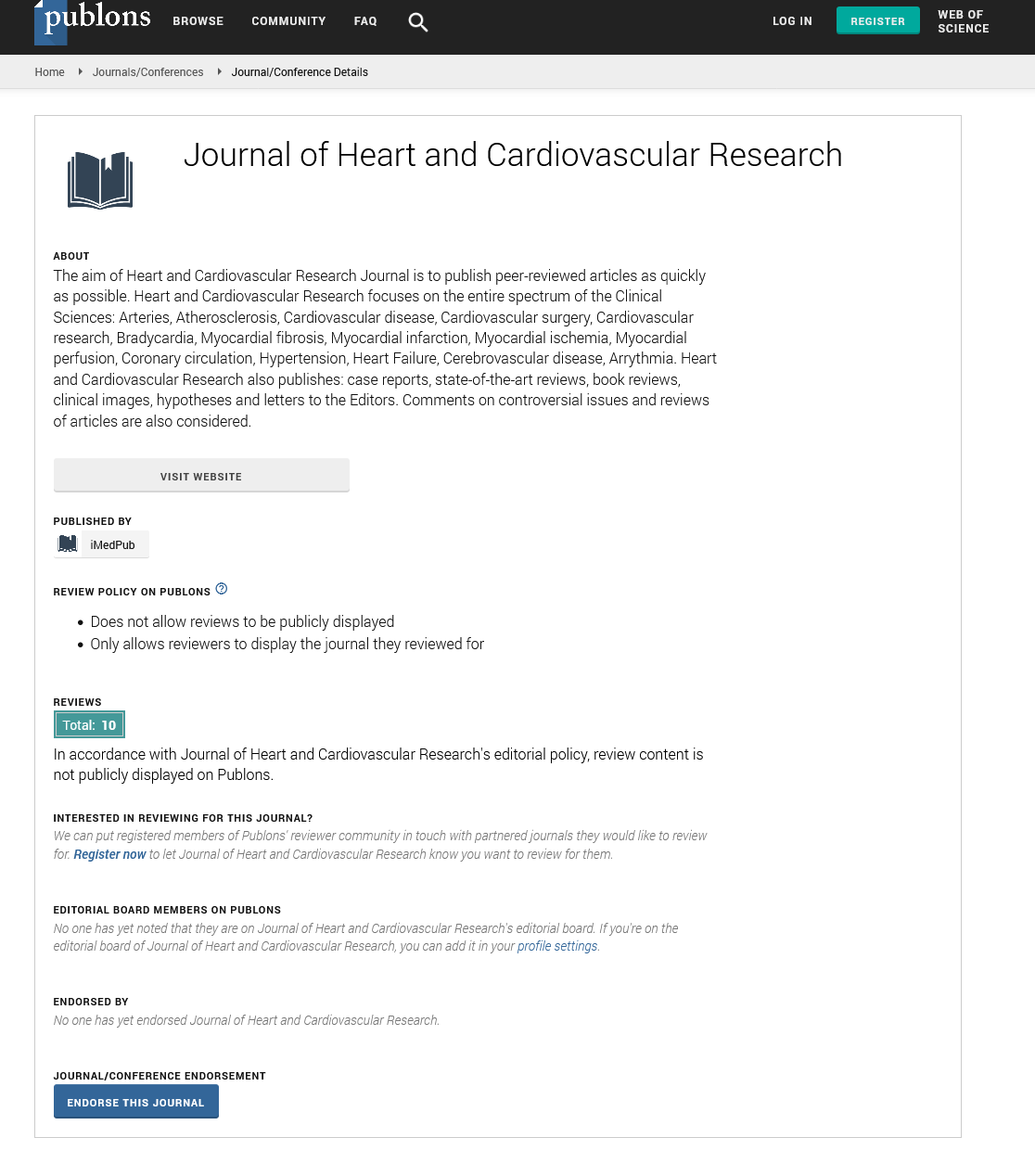ISSN : ISSN: 2576-1455
Journal of Heart and Cardiovascular Research
Abstract
Comparison of two different types of stent platforms with biolimus eluting: 3-year Randomized, Prospective, Single center, Clinical and Angiographic trial
Aim: Biolimus eluting stents (BES) are the most popular stent technologies with biodegradable polymer in interventional cardiology. Many studies showed that restenosis rates were lower in BES than other drug eluting stents. Many different forms of BES are commercial now, but there isn’t any clinical trial that comparison of these platforms. This study is the first study that compare biolimus eluting stent with rigid metalic and flexible metalic platform .
Methods: This trial is randomized, open-label,prospective , unicentered in Ankara Turkey. 481 patients presenting with stable coronary disease or acute coronary syndromes undergoing BES implantation in de novo native-vessel coronary lesions were randomly assigned to treatment with flex metalic stent platform BES (BES flex; n =120) or rigit metalic stent platform BES (BES rigit n:361) and underwent clinical follow-up or angiographycally control to 3 years (Figure 1). The primary endpoint was death from any cause. The secondary end points were death from cardiovascular cause, myocardial infarction, target lesion revascularisation and definite in-stent restenosis.
Results: All of 481 randomized patients were analysed (Table 1). The primary end-point, death from all causes, was similar in both groups (BES-flex: 2.2% vs BES-rigid 2%; p: 0.74). The secondary endpoints, cardiac death (BSS-flex: 1.7% vs BSS-rigid 1.7%; p: 0.99), myocardial infarction (BSS-flex: 6% vs BSS-rigid 7%; p: 0 , 52), target vessel revascularization (BSS-flex: 15% vs BSS-rigid 16%; p: 0.63) were similar in both groups. Coronary angiography control was performed in 142 patients and angiographic restenosis rate was similar in both groups (BSS-flex 19.4% vs BSS-rigid 21.7%, p = 0.775) (Table 2).
Conclusion: BES rigid stents have the same efficacy and safety compared to BES flex stents, whose efficacy and safety have been proven in large studies. With this result, the use of BES rigid stents can provide the same effectiveness at a lower cost. This study is the first clinical study to compare BES with different metallic stent platforms.
Author(s): Veysel Ozgur Barıs, Serkan Tasdelen, Ertugrul Okuyan
Abstract | Full-Text | PDF
Share This Article
Google Scholar citation report
Citations : 34
Journal of Heart and Cardiovascular Research received 34 citations as per Google Scholar report
Journal of Heart and Cardiovascular Research peer review process verified at publons
Abstracted/Indexed in
- Google Scholar
- Sherpa Romeo
- China National Knowledge Infrastructure (CNKI)
- Publons
Open Access Journals
- Aquaculture & Veterinary Science
- Chemistry & Chemical Sciences
- Clinical Sciences
- Engineering
- General Science
- Genetics & Molecular Biology
- Health Care & Nursing
- Immunology & Microbiology
- Materials Science
- Mathematics & Physics
- Medical Sciences
- Neurology & Psychiatry
- Oncology & Cancer Science
- Pharmaceutical Sciences
